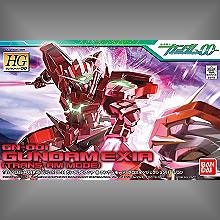

It does seem like games, of all things, would have the potential to be at their greatest under the vision of a single author, but history has shown the opposite (many times, after designers of successful games go on to head their own projects with total control, the results fall short of their predecessors). Oddly, the best games to bear his imprimatur, Civ II, and (by far) Alpha Centauri, were not headed by Meier.
Battle for wesnoth era of chaos 2018 series#
>The strength of the modding community is, instead, the very reason the series survived. In Meier’s memoir, we discover that he was a good game-maker when he fought this essential fact, but that he became great when he learned to embrace it. >A growing pile of video-game histories suggest that the medium has always had collective effort at its heart, from its academic beginnings to its ascent into everyday life. A lot of Civ6 is about abusing the multiplicative bonuses of these cards at the right timing. I feel like Civ6 has pushed "strategy" through its government card system, which is pretty abstract (Oh, you just got a new government card! Time for a new war! I'm going to equip +100% pillage bonus and +4 Strength bonus).
Battle for wesnoth era of chaos 2018 how to#
Civ6, now I'm thinking about movement points, where to retreat to, how to save up HP again and recover, whether or not I can cutoff the opponent's retreat. (Civ1/2 was definitely a "win you live, lose you die" for every combat). Somewhere along the line, combat was no longer a guaranteed killer. So maybe removing stacks all together was a solution (the current direction for Civ5 and Civ6). Yeah yeah yeah, people were confused about "stack kills" in Civ1/2/3, and without stack-kills, Civ4 combat grew dull. Collision detection for the human means that I need to put more effort into deciding where to move and place my units. I'm spending more and more time thinking about where to place units, because they no longer "stack up" with each other.

Tactics are about maneuvering your troops to get an advantage, Strategy is about finding / securing resources (ex: placing your defensive Pikeman on the enemy's mine in Civ2, or in their districts in Civ6)Ĭiv leans towards the simpler/tactics side, but is just barely enough "Strategy" that I'd group it in the strategy side of things.Ĭiv5 and Civ6 has moved more tactical. "Strategy" games approximate the battles and focus on larger scale elements.Ī good rule of thumb is that Strategy Games have an element of siege and supply lines, while Tactics games often just "teleport" the resources where needed. Fire Emblem, Wesnoth, Wargroove, Advance Wars, Heroes of Might and Magic, Panzer General, Starcraft, Age of Empires. "Tactics" games that focus on a singular battle as the core gameplay loop. Romance of the Three Kingdoms is also a strategy game: war, tactics, resources, diplomacy, etc. They're "realtime" only because it'd be too boring to hit "next turn" so often, but you can hit the pause button and really think about a situation at say: September 1st 1939 1pm if something terrible is going on) (Hearts of Iron progresses the simulation in 1-hour increments.

Paradox games (Victoria, Hearts of Iron, Crusader Kings, Europa Universialis) are the "complicated" games, technically realtime but the underlying simulations "feel" turnbased. and believe me, this is a good thing!! Things get really complicated. Just get used to the "luck swings" of battle), but a totally different genre than 4X / Strategy.Ĭivilization is on the easier / simpler end of 4X / Strategy. Its a good game (albeit too luck based IMO. I won, but there wasn't much left at the end. Still remember it because it was the saddest game session I've ever had. I won the game, but it was such a Pyrrhic victory. And the AI didn't clean anything on its own, iirc. The world become a wasteland because I couldn't clean it up in time. But there was one memorable game where I had a massive nuclear exchange with Gandhi. It wasn't too difficult to stay ahead of the pollution curve in the late game as long as you didn't have a war. A random plains tile would be changed to desert. If the map accumulated too much pollution, global warming would happen. You could send out a settler unit to clean up the pollution but it was a slow process. Would appear as a black cloud over a tile. Industries and nuclear war would create pollution on the map.


 0 kommentar(er)
0 kommentar(er)
